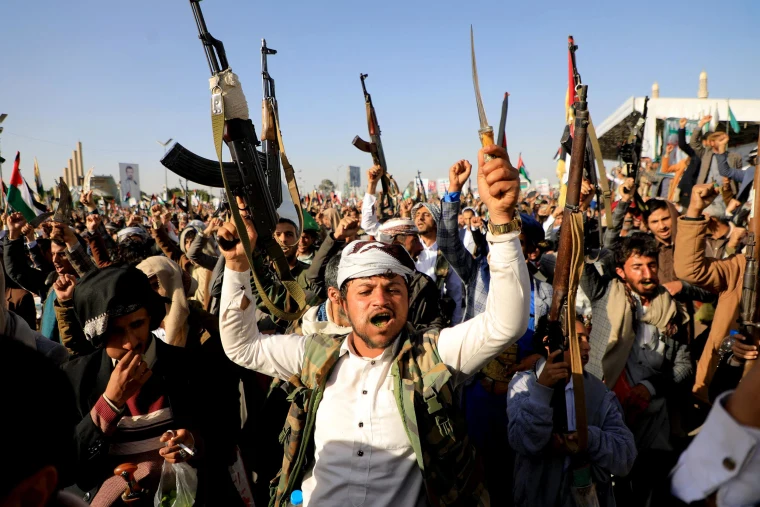In a clandestine meeting held in Lebanon, representatives from Yemen’s Iran-backed Houthis, Hamas, and various Palestinian factions convened to discuss strategies aimed at intensifying confrontations with Israel. The gathering, revealed by a Houthi official speaking to AFP on Saturday, underscored the growing collaboration among groups aligned against Israel.
The Houthis, known for their attacks on Red Sea ships, which they claim are in solidarity with the Palestinian cause, have disrupted global trade since the onset of the Israel-Hamas conflict. This disruption has been a point of contention, with the Houthis justifying their actions as support for Palestinians.
According to sources, including Palestinian representatives, the meeting in Beirut focused on coordinating resistance efforts for the ongoing conflict in Gaza, now in its sixth month. Mechanisms for collaboration and mutual support were discussed, indicating a concerted effort to bolster Palestinian resistance against Israeli aggression.
Of particular concern was the potential for Israeli military action in Rafah, a major urban area in the Gaza Strip. Participants reportedly deliberated on the role of the Houthis alongside Palestinian factions, especially in the event of an Israeli offensive on Rafah. With much of Gaza’s population seeking refuge in Rafah, any incursion by Israeli forces could result in significant civilian casualties.
Israeli Prime Minister Benjamin Netanyahu’s approval of a military plan for a ground operation in Rafah heightened tensions further. While no specific timeline was provided, the move signaled Israel’s readiness to escalate its military campaign in Gaza.
The collaboration between the Houthis, Hamas, and other factions underscores their shared objectives as part of the Iran-backed “axis of resistance.” This alliance, which also includes Lebanese Hezbollah and armed groups in Iraq, poses a formidable challenge to Israel and the United States in the region.
In a speech on Thursday, Houthi leader Abdul Malik al-Houthi issued a warning, threatening to expand their attacks to target ships circumventing the Red Sea and Gulf of Aden by sailing south around Africa. Such a move would have significant implications for global trade and maritime security.
The meeting in Lebanon highlights the evolving dynamics of the Israel-Palestine conflict, with disparate groups aligning to challenge Israeli dominance in the region. As tensions continue to simmer, the specter of further violence looms large, casting a shadow over prospects for peace and stability in the Middle East.


